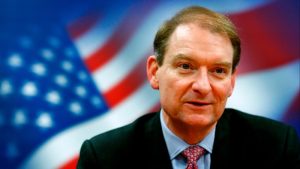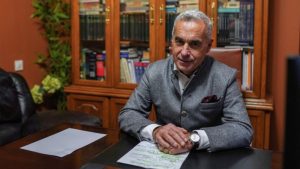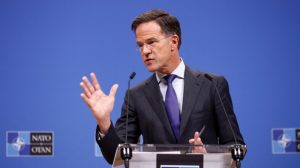Highest earners in UK public service take biggest hit to pay
Unlock the Editor’s Digest for free
Roula Khalaf, Editor of the FT, selects her favourite stories in this weekly newsletter.
Doctors, teachers and police officers are among the public sector workers who have fallen farthest down the UK earnings distribution in the past 15 years, the Institute for Fiscal Studies said on Friday.
The think-tank said its findings, published ahead of next month’s Budget, suggested that future public sector pay deals should be tilted towards higher-paid professions for which recruitment and retention was now hardest.
In 2007, typical hourly pay for doctors put them in the top 5 per cent of UK employees — a position they had held for the previous three decades. By 2023, they barely made it into the top 10 per cent.
Teachers have also slipped, from the 87th percentile in 2007 to the 81st in 2023.
Police officers’ relative position also worsened, although the IFS said this could be because police forces had expanded rapidly by recruiting less experienced officers.
In contrast, lower paid nurses and civil servants have held their place in the pay distribution, at the 70th and 60th percentiles, respectively.
Andrew McKendrick, IFS research economist, said reforming public sector pay would be just as important as raising it to make sure of “getting the right people in the right roles”. This might also mean “carefully rebalancing away from pensions and towards higher-paid professions”, he added.
The IFS said its findings remained the same even after accounting for the relative generosity of public sector pensions.
Even within professions, successive pay deals had often protected lower earners while senior staff took a bigger hit, it said, arguing that it was now “almost certainly justifiable” to target senior civil servants and judges for bigger pay rises given growing recruitment and retention problems.
It called for pensions to be rethought, arguing that while public sector pensions remained far more valuable than those in the private sector, many lower paid staff could no longer afford the contributions required.
The IFS said 15 per cent of entry-level nurses and 20 per cent of doctors in core training were now opting out of the NHS pension because of this, with a similar trend seen in the Metropolitan Police.
Any move to boost public sector pay at the expense of pensions is likely to meet fierce opposition from unions, who argue that the gap between the private and public sectors should be bridged by making private sector pensions more generous, rather than the reverse.
But any further boost to public sector pay will require difficult trade-offs. Even after this year’s £9.4bn pay award, chancellor Rachel Reeves would need to find an extra £6bn a year by 2028-29 if she wanted to raise public sector wages in line with average UK earnings growth, the IFS estimated.
The annual pay bill would need to rise by around £17bn if she wanted to close the gap that has opened up between private and public sector employees since 2019. Increasing the size of the workforce, as the government’s long-term plans for the NHS require, would cost more.
#Highest #earners #public #service #biggest #hit #pay





